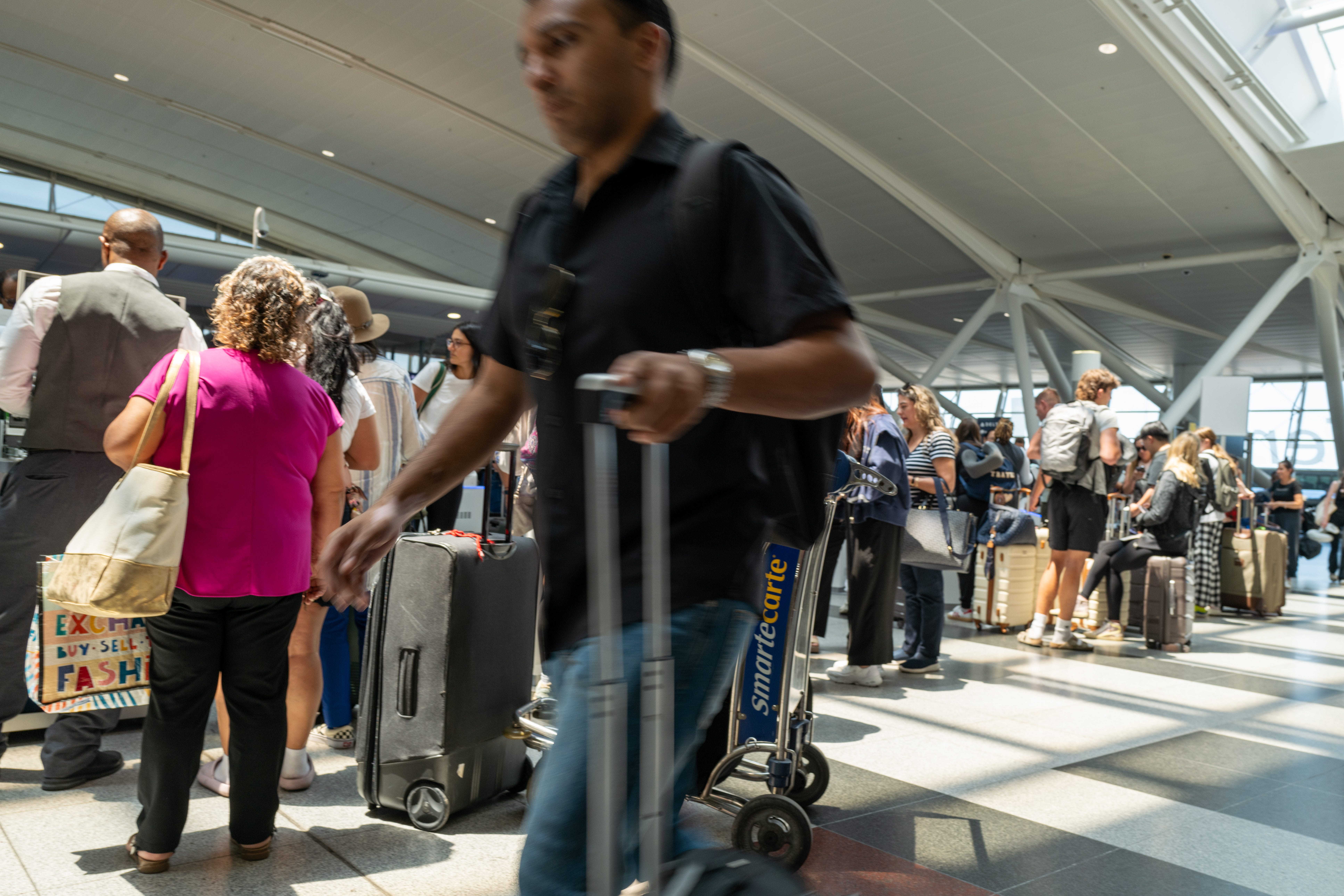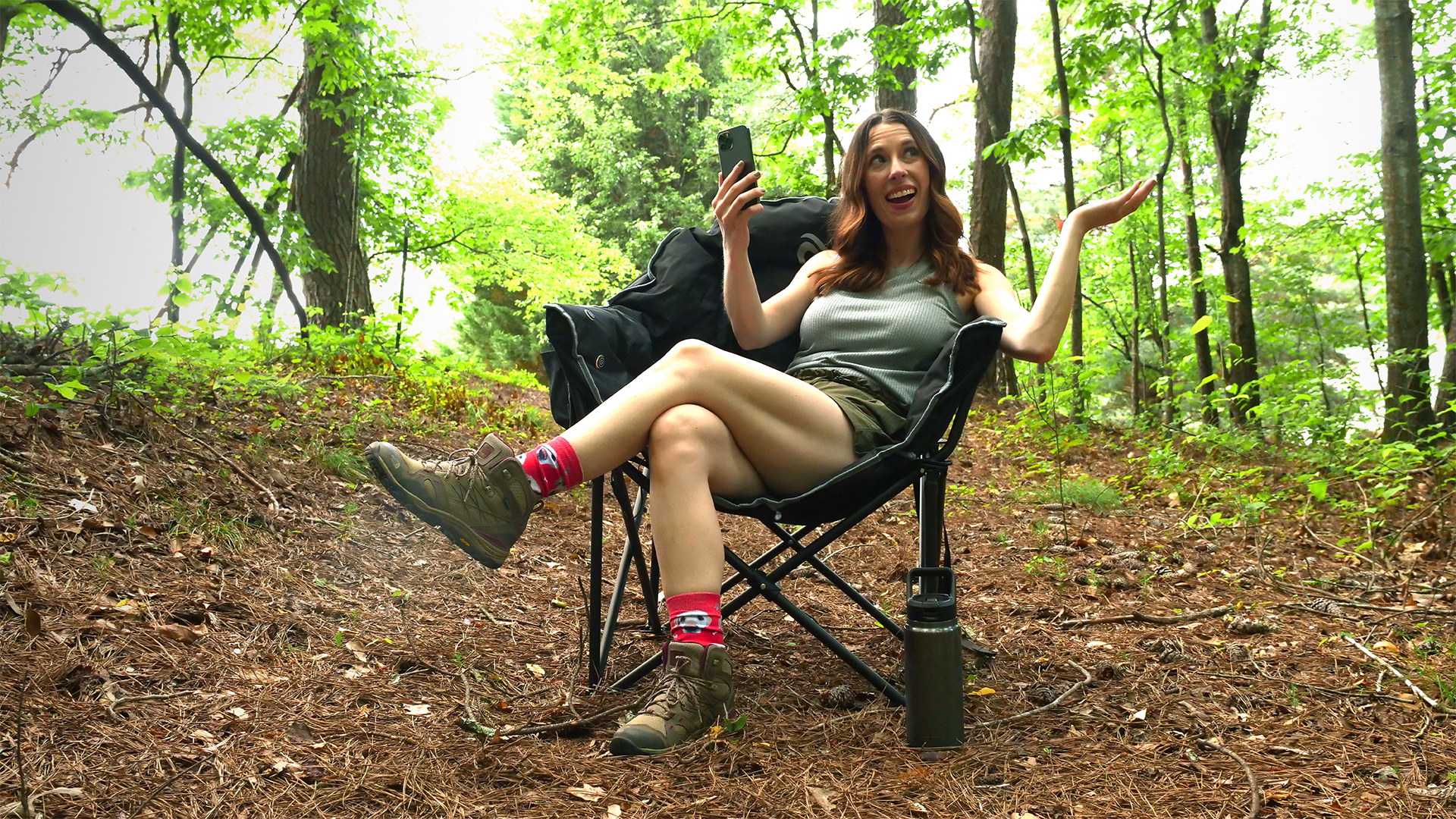'we Can Do Our Own Thing': Why Canadians Are Trading The Us For These Destinations

- Canadians are increasingly choosing not to travel to the U.S. due to political rhetoric and new tariffs.
- Some Canadians feel unwelcome in the U.S. due to the political climate and concerns about border security.
- Canadians are instead opting for domestic travel or exploring other international destinations.
- While some believe U.S. tourism will eventually recover, others predict a long-term impact as Canadians discover new travel preferences.
Don Delayen and his wife scrapped their plans to visit California this spring, swapping a week in Laguna plus a cruise that sailed back to Vancouver, where they're based, for Puerto Vallarta, Mexico.
The decision came after they heard President Donald Trump's threat to annex Canada into the 51st state. "The tariffs are one thing, but basically it was Trump's derogatory talk towards Canada that lit the torch," Delayen said. To the Canadian, it felt like an attack on his country's sovereignty. It's not that he's anti-American; he just doesn't want to support the U.S. with his money right now.
Delayen isn't the only Canadian forgoing trips south of the border. Canadian travel to the U.S. is slipping quickly. In March, the number of Canadians crossing the border by car dropped a staggering 32% compared to the same month last year, according to Statistics Canada. Air travel wasn’t far behind, falling 13.5% year-over-year. After a 12% decline in Canadian visitors to California in February, Governor Gavin Newsom launched a tourism campaign in April encouraging Canadians to visit his "welcoming" state.
It’s the third straight month of sharp declines in Canadian inbound travel to the U.S., following Trump’s renewed rhetoric toward Canada and a wave of new tariffs that some travelers say have made them feel less welcome. As immigration has escalated at U.S. borders and amid high-profile stories of detainments, others worry about their safety and don't want to take the risk.
The shift has prompted Canadians, who make up the largest demographic of travelers to the U.S., to look elsewhere for their getaways. Some are outright canceling their planned trips. It's not that Canadians aren't traveling; they're just choosing new destinations, with many rediscovering their own country or exploring new locales.
According to the U.S. Travel Association, even a 10% drop in Canadian tourism could cost the U.S. $2.1 billion in spending and threaten 140,000 jobs. With an over 30% decline, the country may be looking at losses exceeding $6 billion in 2025 alone.
As international travel habits evolve, Canadians appear to be sending a message: it's OK to skip the U.S.
For Canadians, the U.S. has been their most popular destination, for snowbirds, sports games, national parks and more. However, since January, there has been a surge in interest in domestic travel within Canada, according to TRAVELSAVERS Canada, a travel marketing organization.
It's a strong response to former Prime Minister Justin Trudeau's call for his citizens to "choose Canada" for their travels.
"It might mean changing your summer vacation plans to stay here in Canada and explore the many national and provincial parks, historical sites, and tourist destinations our great country has to offer," Trudeau said in March.
The change comes from a combination of boycotting U.S. travel based on principle and also going where their Canadian dollar goes further. "Things have calmed down a little bit because people are realizing this narrative is going to continue for a long time," said Jane Clementino, senior vice president and general manager of TRAVELSAVERS Canada. "So the noise has sort of lessened, and people are just making conscious decisions."
According to Expedia, domestic travel makes up the most bookings by Canadian travelers since the start of 2025, and the travel platform's latest Summer Travel Outlook shows where they’re likely headed. Coastal gems like Tofino, St. John’s and Gaspésie are booming, each with a search increase of 30% or more. Other popular Canadian destinations include major cities like Toronto, Vancouver, Montreal, Calgary and Quebec.
"This summer, Canadians are choosing to travel closer to home," said Melanie Fish, head of Expedia Group brands public relations. "We've seen an increase in domestic travel searches on Expedia."
But it’s not just about staying home, with searches up for Delhi, Lisbon and Chiba Prefecture. St. Pierre and Miquelon, a small French territory off the coast of Newfoundland, also saw a 130% spike in searches, offering Canadian travelers a "Eurotrip without the jetlag."
As is tradition for Canadians seeking to escape harsh winters, this year sees many trading the usual destinations of Florida and Arizona for Mexico’s Cancún, Punta Cana, and Oaxaca regions. Thailand’s Koh Samui, popularized to a Western audience by HBO's latest season of The White Lotus, also showed strong increases.
"It comes down to, outside of the fact that Canadians have got their back up and they're boycotting the U.S. on travel, we don't really feel like we're missing anything, right?" said Delayen. "I went to Puerto Vallarta, and I'm on a beautiful beach, a condominium tower that was just unbelievable, like where the infinity pool touched the beach sand, and that's costing me less than half of what it would cost me in the States."
It's too soon to tell how long Canadians will avoid the U.S. Some experts warn that the shift could have long-term economic impacts for the U.S., especially if travelers have a positive experience in another destination and return there instead of to the U.S.
Others believe that travel to the U.S. will slowly recover over time. "I think Canadians are always going to find a spot in the United States to travel over time," said Clementino. "It's not a good time right now, and we definitely have seen that shift."
For some, like Delayen, it's not so simple. "It's going to have a long-lasting impact," he said. "It's not like we're going to bounce back because we feel slighted." Traveling to the U.S. isn't on his plate for the near future, although he hopes to return to Hawaii Island someday when he's ready.
Others are seizing this time as an opportunity to reconnect with the place they call home.
For Jen McGuire, a journalist based in Ontario, her travels used to largely take place in the U.S. "The reality is we grew up with a massive infusion of American culture on TV. So many of us are like, I've got to see California, I've got to go there because that's what we grew up with," she said. "We didn't grow up watching our own country on TV or having it in the media all the time. I think a lot of us just sort of bypassed that and went right to the States."
McGuire recently canceled several upcoming trips to the U.S., both for work and personal travel. She's also been putting off a visit to her parents in South Carolina. Part of it is in solidarity with her fellow Canadians boycotting, but also "a little bit of paranoia" over what could happen at the border, especially since she used to write about politics.
"It feels really unfortunate because I actually love coming to the States," she said. "It's wonderful, it's a great country. Of course, it's gorgeous. But I just can't do it right now." Her new travel plans include a hiking trip in the Canadian Rockies in Alberta and a road trip through New Brunswick – and she's excited to explore more of her home.
"You know, negative connotations aside, I think it's a little bit okay that Canadians are wanting to sort of figure out our own identity," said McGuire. "We're like, it's okay, we can do our own thing for a minute."


